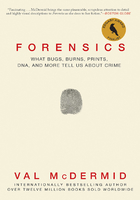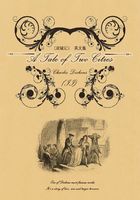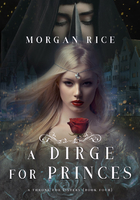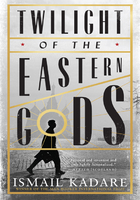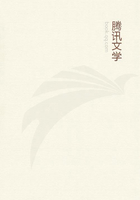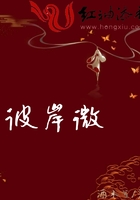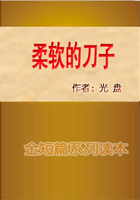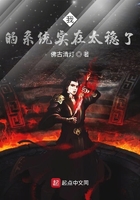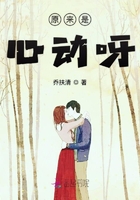We were sailing from Venice to Naples when the Turkish fleet appeared. We numbered three ships all told, but the file of their galleys emerging from the fog seemed to have no end. We lost our nerve; fear and confusion instantly broke out on our ship, and our oarsmen, most of them Turks and Moors, were screaming with joy. Our vessel turned its bow landward, westward, like the other two, but unlike them we could not gather speed. Our captain, fearing punishment should he be captured, could not bring himself to give the command to whip the captives at the oars. In later years I often thought that this moment of cowardice changed my whole life.
But now it seems to me that my life would have been changed if our captain had not suddenly been overcome by fear. Many men believe that no life is determined in advance, that all stories are essentially a chain of coincidences. And yet, even those who believe this come to the conclusion, when they look back, that events they once took for chance were really inevitable. I have reached that moment now, as I sit at an old table writing my book, visualizing the colours of the Turkish ships appearing like phantoms in the fog; this seems the best of times to tell a tale.
Our captain took heart when he saw the other two ships slip away from the Turkish vessels and disappear into the fog, and at last he dared to beat the oarsmen, but we were too late; even whips could not make the slaves obey once they had been aroused by the passion for freedom. Cutting the unnerving wall of fog into waves of colour, more than ten Turkish galleys were upon us at once. Now at last our captain decided to fight, trying to overcome, I believe, not the enemy, but his own fear and shame; he had the slaves flogged mercilessly and ordered the cannons made ready, but the passion for battle, late to flame, was also quick to burn out. We were caught in a violent broadside volley – our ship would surely sink if we did not give up at once – we decided to raise the flag of surrender.
While we waited on a calm sea for the Turkish ships to draw alongside, I went to my cabin, put my things in order as if expecting not arch-enemies who would change my whole life, but a few friends paying a visit, and opening my little trunk rummaged through my books, lost in thought. My eyes filled with tears as I turned the pages of a volume I'd paid dearly for in Florence; I heard shrieks, footsteps rushing back and forth, an uproar going on outside, I knew that at any moment the book would be snatched from my hand, yet I wanted to think not of that but of what was written on its pages. It was as if the thoughts, the sentences, the equations in the book contained the whole of my past life which I dreaded to lose; while I read random phrases under my breath, as though reciting a prayer. I desperately wanted to engrave the entire volume on my memory so that when they did come, I would not think of them and what they would make me suffer, but would remember the colours of my past as if recalling the cherished words of a book I had memorized with pleasure.
In those days I was a different person, even called a different name by mother, fiancée and friends. Once in a while I still see in my dreams that person who used to be me, or who I now believe was me, and wake up drenched in sweat. This person who brings to mind now the faded colours, the dream-like shades of those lands that never were, the animals that never existed, the incredible weapons we later invented year after year, was twenty-three years old then, had studied 'science and art' in Florence and Venice, believed he knew something of astronomy, mathematics, physics, painting. Of course he was conceited: having devoured most of what had been accomplished before his time, he turned up his nose at it all; he had no doubt he'd do better; he had no equal; he knew he was more intelligent and creative than anyone else. In short, he was an average youth. It pains me to think, when I have to invent a past for myself, that this youth who talked with his beloved about his passions, his plans, about the world and science, who found it natural that his fiancée adored him, was actually me. But I comfort myself with the thought that one day a few people will patiently read to the end what I write here and understand that I was not that youth. And perhaps those patient readers will think, as I do now, that the story of that youth who let go of his life while reading his precious books continued later from where it broke off.
When the Turkish sailors threw down their ramps and came on board I put the books in my trunk and peered outside. Pandemonium had broken out on the vessel. They were gathering everyone together on deck and stripping them naked. For a moment it passed through my mind that I could jump overboard in the confusion, but I thought they would shoot me in the water, or capture and kill me immediately, and anyway, I didn't know how close we were to land. At first no one bothered with me. The Muslim slaves, loosed from their chains, were shouting with joy, and a gang of them set about taking vengeance right away on the men who had whipped them. Soon they found me in my cabin, came inside, ransacked my possessions. They rifled through my trunks searching for gold, and after they took away some of my books and all of my clothes, someone grabbed me as I distractedly pored over the couple of books left and took me to one of the captains.
The captain, who as I learned later was a Genoese convert, treated me well; he asked what my profession was. Wanting to avoid being put to the oars, I declared right away that I had knowledge of astronomy and nocturnal navigation, but this made no impression. I then claimed I was a doctor, counting on the anatomy book they'd left me. When I was showed a man who'd lost an arm, I protested that I was not a surgeon. This angered them, and they were about to put me to the oars when the captain, noticing my books, asked if I knew anything of urine and pulses. When I said I did I was saved from the oar and even managed to salvage a few of my books.
But this privilege cost me dear. The other Christians who were put to the oars despised me instantly. They would have killed me in the hold where we were locked up at night if they could have but they were afraid to, because I had so quickly established relations with the Turks. Our cowardly captain had just died at the stake, and as a warning to others they'd cut off the noses and ears of the sailors who'd lashed the slaves, then set them adrift on a raft. After I'd treated a few Turks, using my common sense rather than a knowledge of anatomy, and their wounds had healed by themselves, everyone believed I was a doctor. Even some of those who, moved by envy, had told the Turks I was no doctor at all showed me their wounds at night in the hold.
We sailed into Istanbul with spectacular ceremony. It was said that the child sultan was watching the celebrations. They hoisted their banners on every mast and at the bottom hung our flags, our icons of the Virgin Mary and crucifixes upside down, letting hotheads from the city who jumped aboard shoot at them. Cannon fire burst across the sky. The ceremony, like many I would watch from land in later years with a mixture of sorrow, disgust, and pleasure, lasted such a long time that many spectators fainted in the sun. Towards evening we dropped anchor at Kasimpasha. Before bringing us before the sultan they put us in chains, made our soldiers wear their armour back to front in ridicule, put iron hoops around the necks of our officers, and blasting away on the horns and trumpets they'd taken from our ship, raucously, triumphantly, brought us to the palace. The people of the city were lined up along the avenues, watching us with amusement and curiosity. The sultan, hidden from our view, selected his share of slaves and had them separated from the others. They transported us across the Golden Horn to Galata on caiques and crammed us into Sadik Pasha's prison.
The gaol was a miserable place. Hundreds of captives rotted away in filth inside the tiny, damp cells. I found plenty of people there to practise my new profession on, and I actually cured some of them. I wrote prescriptions for guards with aching backs or legs. So here, too, they treated me differently from the rest, and gave me a better cell that caught the sunlight. Seeing how it was for the others, I tried to be thankful for my own circumstances, but one morning they woke me along with the rest of the prisoners and told me I was going out to work. When I protested that I was a doctor, with knowledge of medicine and science, they just laughed: there were walls to be built around the pasha's garden, men were needed. We were chained together each morning before the sun rose and taken outside the city. While we trudged back to our prison in the evenings, still chained to one another after gathering stones all day, I reflected that Istanbul was indeed a beautiful city, but that here one must be a master, not a slave.
Yet still I was no ordinary slave. People had heard I was a doctor, so now I was not just looking after the slaves rotting away in the prison, but others as well. I had to give a large part of the fees I earned for doctoring to the guards who smuggled me outside. With the money I was able to hide from them, I paid for lessons in Turkish. My teacher was an agreeable, elderly fellow who looked after the pasha's petty affairs. It pleased him to see I was quick to learn Turkish and he'd say I would soon become a Muslim. I had to press him to take his fee after each lesson. I also gave him money to bring me food, for I was determined to look after myself well.
One foggy evening an officer came to my cell, saying that the pasha wished to see me. Surprised and excited, I prepared myself at once. I thought that one of my resourceful relatives at home, perhaps my father, perhaps my future father-in-law, must have sent money for my ransom. As I walked through the fog down the twisting, narrow streets, I felt as if I would suddenly come upon my house, or find myself face to face with my loved ones as though awakening from a dream. Perhaps they had managed to send someone to negotiate my release, perhaps this very night in this same fog I'd be put on a ship and sent back home. When I entered the pasha's mansion I realized I could not be rescued so easily. The people here walked around on tiptoe.
First they led me into a long hall where I waited until I was shown into one of the rooms. An affable little man was stretched out under a blanket on a small divan. There was another, powerfully built man standing at his side. The one lying down was the pasha, who beckoned me to him. We spoke. He asked me a few questions. I said my real fields of study had been astronomy, mathematics, and to a lesser extent engineering, but that I also had knowledge of medicine and had treated a number of patients. He continued to question me and I was about to tell him more when, saying I must be an intelligent man to have learned Turkish so quickly, he added that he had a problem with his health which none of the other doctors had been able to cure, and, hearing of me, he'd wanted to put me to the test.
He began to describe his problem in such a way that I was forced to conclude that it was a rare illness which had stricken only the pasha of all the men on the face of the earth, because his enemies had deceived God with their calumnies. But his complaint was simply shortness of breath. I questioned him at length, listened to his cough, then went down to the kitchen and made mint-flavoured green troches with what I found there. I prepared cough-syrup as well. Because the pasha was afraid of being poisoned, I swallowed one of the troches with a sip of the syrup while he watched. He told me I must leave the mansion secretly, taking great care not to be seen, and return to the prison. The officer later explained that the pasha did not want to arouse the envy of the other doctors. I returned the next day, listened to his cough, and gave him the same medicine. He was as delighted as a child with the colourful troches I left in his palm. As I walked back to my cell, I prayed he would get better. The following day the north wind was blowing. It was a gentle, cool breeze and I thought a man would improve in this weather even against his will, but heard nothing.
A month later when I was called for, again in the middle of the night, the pasha was up on his feet in good spirits. I was relieved to hear him draw breath easily as he scolded a few people. He was glad to see me, said his illness was cured, that I was a good doctor. What favour did I ask of him? I knew he would not immediately free me and send me home. So I complained of my cell, of the prison; explained I was being worn out pointlessly with heavy labour when I could be more useful if I were occupied with astronomy and medicine. I don't know how much of it he listened to. The guards took a lion's share of the purse full of money he gave me.
A week later an officer came to my cell one night, and after making me swear I wouldn't try to escape, took off my chains. I was to be taken out to work again, but the slave-drivers now gave me preferential treatment. Three days later the officer brought me new clothes and I realized I was under the pasha's protection.
I was still being summoned at night to various mansions. I administered drugs to old pirates with rheumatism, and young soldiers whose stomachs ached. I bled those who itched, lost colour, or had headaches. Once, a week after I gave syrups to a servant's stuttering son, he recovered and recited a poem for me.
Winter passed in this way. When spring came I heard that the pasha, who hadn't asked for me in months was in the Mediterranean with the fleet. During the hot days of summer people who noticed my despair and frustration told me I had no reason to complain, as I was earning good money as a doctor. A former slave who had converted to Islam many years before advised me not to run away. They always kept a slave who was useful to them, as they were keeping me, never granting him permission to return to his country. If I became a Muslim as he had done, I could make a freedman of myself, but nothing more. Since I thought he might have said this just to sound me out, I told him I had no intention of trying to escape. It wasn't the desire I lacked but the courage. Those who fled, all of them, were caught before they got very far. After these unfortunates were beaten I was the one who spread salve on their wounds at night in their cells.
As autumn drew near, the pasha returned with the fleet; he greeted the sultan with cannon fire, tried to cheer the city as he had done the previous year, but it was obvious they'd not passed this season at all well. They brought only a few slaves to the prison. We learned later that the Venetians had burned six ships. Hoping to get news of home, I watched for an opportunity to talk with the slaves, most of whom were Spanish; but they were silent, ignorant, timid things who had no desire to speak unless to beg for help or food. Only one of them interested me: he'd lost an arm, but optimistically said one of his ancestors had lived through the same misadventure and survived to write a romance of chivalry with the arm he had left. He believed he would be spared to do the same. In later years, when I wrote stories to live, I remembered this man who dreamed of living to write stories. Not long after this a contagious disease broke out in the prison, an ill-omened epidemic which killed more than half of the slaves before it passed on, and from which I protected myself by smothering the guards with bribes.
Those left alive were taken out to work on new projects. I didn't go. In the evenings they talked of how they went all the way to the tip of the Golden Horn, where they were set to work at various tasks under the supervision of carpenters, costumers, painters: they were making papier maché models – ships, castles, towers. Later we learned why: the pasha's son was to marry the daughter of the grand vizier and he was arranging a spectacular wedding.
One morning I was called to the pasha's mansion. I went, thinking his shortness of breath had returned. The pasha was engaged, they took me to a room to wait, I sat down. After a few moments another door opened and someone five or six years older than myself came in. I looked up at his face in shock – immediately I was terrified.

